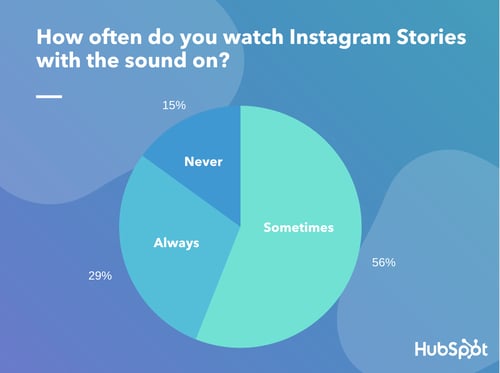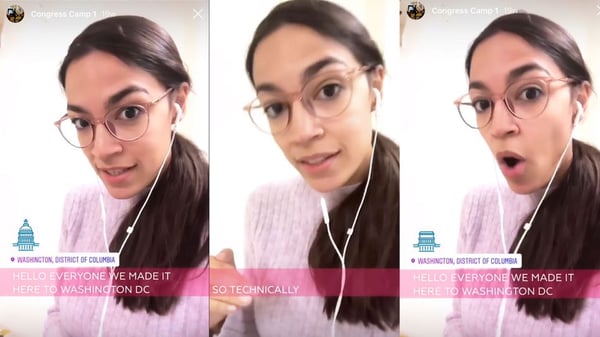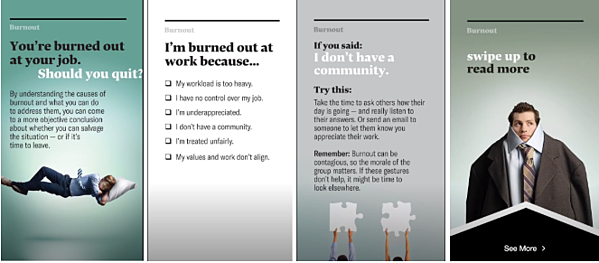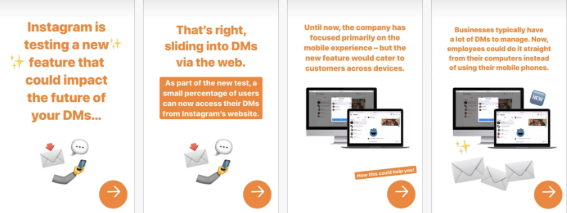Since the dawn of Stories features across social media platforms, many brands have asked, "Should we make Stories with or without sound?"
While some people love to get the full experience of sight and sound while they watch Stories on various platforms, others watch this type of content when they're on-the-go.
Because many mobile users are often in public, standing near people, or even in at school or work when they watch Story content, they might choose to watch with the sound off.
Story platforms have even debated whether this element is or isn't a necessity. Recently, news coverage from MarketingLand noted that Snapchat encourages creators to include sound in their Stories, while Facebook says otherwise.
But, what about Instagram? Are people turning off their sound to watch Stories on this platform? Or is it still worth creating Stories that rely on audio elements?
This question is such a highly debated topic that I decided to ask consumers to weigh in.
To do this, I used Lucid software to ask over 350 people the question, "How often do you watch Instagram Stories with the sound on?"
When I received the results, I was actually pretty surprised by what the consumer group said.
After that Facebook, Instagram's owner, announced that 85% of its own platform's users watch videos without sound, you might think that many Instagram users also watch content -- like Stories -- without audio. But, then again, if you're a Snapchat user who's more accustomed to watching videos with the sound on, you might assume that everyone else has a similar preference.
But, when it came to the poll, the results were a fairly mixed bag.
Of the respondents who watch Instagram Stories, 56% say they watch with the sound on "Sometimes," while 29% say, "Always." Only a small chunk of consumers say they never watch Stories with the sound on.

Data Source: Lucid Software
So, what does a "Sometimes to Always" response mean for marketers?
Depending on what the Story content is, you don't have to worry too much about whether you need sound or not. If you need it to tell a better Story, you can still place have non-silent content. And, if your content is more photo, interactive sticker, or text-heavy, you don't need to purchase music or create sounds to make it engaging.
One thing to keep in mind is that if you have a Story that requires sound to understand, you might want to make it accessible to people who view it on silent.
For example, if you interview someone, you could include a "Sound On" disclaimer, or subtitles that appear at the bottom of the video, This way, viewers will either be able to read from the subtitles, or they can return to the Story when they're able to turn on their sound.
To give you a visual example, here's what an Instagram Story with subtitles might look like:

Source: Mashable
3 Instagram Stories that Work Without Sound
Ultimately, if you want to save money, time, and effort, you can drop sound altogether. However, when you do this, you'll want to make sure that your visual content is both enticing and informative so a user can understand and engage with a Story. Here are a few great examples of brands that do this well.
Starbucks
Starbucks uses Stories to share customer testimonies, new product launches, and other interactive content. These aspects of promotional content are not only interesting for viewers and prospective customers -- but additionally -- they don't require sound.
In one example, Starbucks asks viewers to guess which drink is coming back. In the Story's next page, the brand shares the best text-based answers and reveals the S'mores Frap and image. To add some extra interactivity, viewers can vote on what type of S'mores Frap they prefer and guess how many S'mores are shown in a video.

Harvard Business Publishing
The Harvard Business Review often centers Stories around management, professionalism, and career-life tips. While HBR has published videos and content with sound on its Instagram Story, they often adapt long-form article content into abridged Stories.
In these adapted Stories, you'll often see a blurb of text, poll, or quiz on each page, rather than having to listen to a soundbite or video to understand the content.
To make their text-based Stories more interesting and engaging, HBR embraces Instagram's poll, quiz, and other interactive Story features. However, the publication also gets creative by adding its own spin on interactivity to a story.
In the example below, the publication shows users a burn-out checklist which they can screenshot and check off. The story then gives you advice on what to do if you checked any of the boxes.

HubSpot
At HubSpot, our social media team will occasionally post Stories with sound, but usually, they leverage quizzes, polls, and short blurbs of text to tell a compelling story without sound. Here's a recent example where our Instagram Story highlights a new DM feature on the platform:

In the example above, our social team includes small blurbs of text to fully inform viewers about the topic we're discussing. To keep viewers entertained, our social team includes images and relevant GIFs in the Stories.
How to Create Engaging Silent Content
Ready to create your first fully-silent Instagram Story, or at least embrace silent content in your content strategy?
To get started, it can be helpful to familiarize yourself with all the silent, but still engaging, features you can use on Instagram Stories. Then, if you're interested in branching out with silent content on other platforms, check out this great guide to creating silent video.
Need more examples of soundless content? Click here for a rundown of silent video examples.
No comments:
Post a Comment